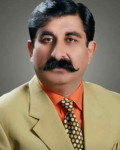Shehbaz, Deng, Xi and transformation
June 5, 2024 09:48 PM

China remained a pariah in its early independence days, kept out by US strategic ban and isolation from the global political and economic system. When China joined the UN in 1971, it reclaimed its position and started using conventional means to access markets worldwide to pursue its interests abroad. As reforms made by former Chinese President Deng Xiaoping transformed China's economy and its ties with the world, China's global prestige, impact and political influence grew manifold. The 1989-Tiananmen demonstration, reforms in Eastern Europe, and the fall of the Soviet Union in 1991 made China politically aware. China's political impact has become more evident in recent decades. It has sought to recognize its economic achievement as a diplomatic influencer and change its image as a human rights violator worldview. China’s permanent seat in the United Nations Security Council (1971) was certainly the most significant gain in legislative matters internationally.
China used its veto power to mediate and resolve the issues. During the Gulf emergency in 1990 - 91, China voted to favour Iraq's endorsement of UN priorities. It required Iraq’s withdrawal from Kuwait apart from authorizing military force. China abstained while expressing its concerns about the targets. Regardless of economic and strategic competition between China and the US, things are not chilling out on numerous fronts. The US is not modest in its approach towards China's rise as an influential force.
China's rise in recent years has been from any viewpoint and merit consideration, particularly considering the troublesome course of China's endeavour to adjust itself to the cutting-edge world since the 19th century. Presently, China is an emerging superpower in our neighbourhood. Pakistani leadership has many lessons to learn from Chinese leadership. China is rapidly building up itself as an incredible power, comparable to the US and ahead of Great Britain, Japan and India. China’s stature and power are developing at the global level. However, it stays a local force in some instances, supplementing others under the predominance of the US. From the viewpoint of pragmatist international relations, it does not justify the caution and anxiety of the declaration of a showing-up superpower. Between the 2007 and 2010 financial crises, China was presented with enormous opportunities and challenges.
Today's China might attempt to modify its role and become the pivotal entity in the power relations dictating the global structure. This shift would have included getting out of the reserved diplomacy China always decided on, which was by no means an easy task for the state. The change from reserved diplomacy to multilateralism was the transformation that progressively shaped rising China. It was a steadfast journey of consistency, hard work and commitment of former President Deng Xiaoping and present President Xi Jinping. During the time of its establishment and transformation, China stayed cautious of the outside world. Even during the Cold War era, China’s relations with other states were on the notion of self-defence and fortification of its people from colonial powers and their dominion. However, the 1980s witnessed a comparatively new China under the direction and leadership of then-President Deng Xiaoping, which brought an influx of foreign investment into the country. Deng Xiaoping’s open-door policy was more inclined to the ideas and viewpoints of the rest of the world. China surpassed itself while transforming diplomacy and socio-economic policies, which made it rise as an implausible power that modified the international structure in profound ways.
The intricacies of world affairs, especially the history of China, and the fluctuations other ruling powers of the world experienced in the past have taught China of today to engage itself in joint ventures with different organizations and re-assess its relations with the US and other emerging big powers like India. It has been China’s policy to act carefully and make sure not to present itself as a danger in the emerging new world order. As a substitute, China aims to validate itself as a Soft Power and make its active role evident with multilateral diplomacy. That is how China has been guarding its peculiar interests while building its progressive reputation as a responsible global power.
China has augmented its involvement in international security concerns, from the Six-Party dialogues to the diplomatic responsibilities carried out in Iran and Sudan. Simultaneously, it has secured pivotal positions in international institutions, such as the UN, WHO, IMF, and WTO. Although it is perplexing and challenging to draw any substantiated deductions on the influence of the international financial crisis, explicitly on China’s diplomacy, worldwide security issues, and economic strategies, China has achieved a significant leading position on the international stage.
Under the leadership of Deng Xiaoping and Xi Jinping the People’s Republic of China has transformed its approach from observing the world from a distant and traditionalist viewpoint to a more involved, flexible, and rational one, emphasizing multilateralism and mutual socio-economic course of action. Prime Minister Shehbaz Sharif along with leading business groups of Pakistan is visiting China from June 4 - 8. He is optimistic about having close bilateral business cooperation. Regarding the next phase of CPEC Premier Shehbaz Sharif"s recent visit from June 4-8 will be a landmark achievement of both the brotherly countries. Impressed with the Chinese successful model of massive economic development the PMLN Supremo Nawaz Sharif has always been struggling for the uplift of economy of Pakistan. During the last regime of Nawaz Sharif, CPEC and other multiple ties with China touched new economic horizons. This time under the leadership of the dynamic PMLN Supremo Nawaz Sharif his younger brother Shehbaz Sharif who is known as Shehbaz Speed has pulled up the socks to steer the country to the safe economic harbors. Nonetheless, there are many lessons for Pakistan to learn from China.
However, China and Pakistan’s contribution at the global level is focused on economic cooperation and gigantic projects rather than setting otherwise agendas or policymaking internationally. The financial crunch in past undoubtedly has offered China a prospect of initiating flexing its global management muscles. All the while Pakistan is firming up its bilateral position with China. The US strategies for countering massive development of China are poised to destabilize the whole international order, which in the light of realist theory may go on the path of unrest.







 Shabbir Jan’s daughter ties the knot in lavish ceremony
Shabbir Jan’s daughter ties the knot in lavish ceremony Lahore begins e-challan system for lane, stop line, and zebra crossing violations
Lahore begins e-challan system for lane, stop line, and zebra crossing violations 'Tere Bin' set for Turkish release, Watch trailer
'Tere Bin' set for Turkish release, Watch trailer Terrible traffic accident near Karachi's Awami Centre on Shahrah-e-Faisal
Terrible traffic accident near Karachi's Awami Centre on Shahrah-e-Faisal What’s cooking: Ramsha Khan celebrates 30th birthday with Ahad Raza Mir's presence
What’s cooking: Ramsha Khan celebrates 30th birthday with Ahad Raza Mir's presence Ameesha Patel's sharp response to fan suggesting her to marry Salman Khan
Ameesha Patel's sharp response to fan suggesting her to marry Salman Khan
